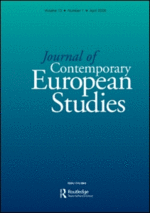Words of Women from the Egyptian Revolution

Although not directly related to the theme of this weblog I felt it was important to dedicate a note to the Words of Women from the Egyptian Revolution project which sheds light on, and documents the participation of women in the Egyptian revolution. Although the Egyptian middle class is over-represented in the women interviewed, the sheer diversity of outlooks, lifestyles and pathways to taking part in the protests and the movement that surrounds them reveals the complexity of the social dynamics in Egypt today. And, more importantly, the voices of the women interviewed are voices of determination, courage, steadfastness and resilience, yet, at the same time, they are voices of ordinary people, simple, devoid of bravado and pretense. This is a worthy project that explores the encounter of the mundane and the trivial with the heroic, that injects the experiences of ordinary women in a male-dominated collective memory. And although the enunciators are women, their testimonies capt

